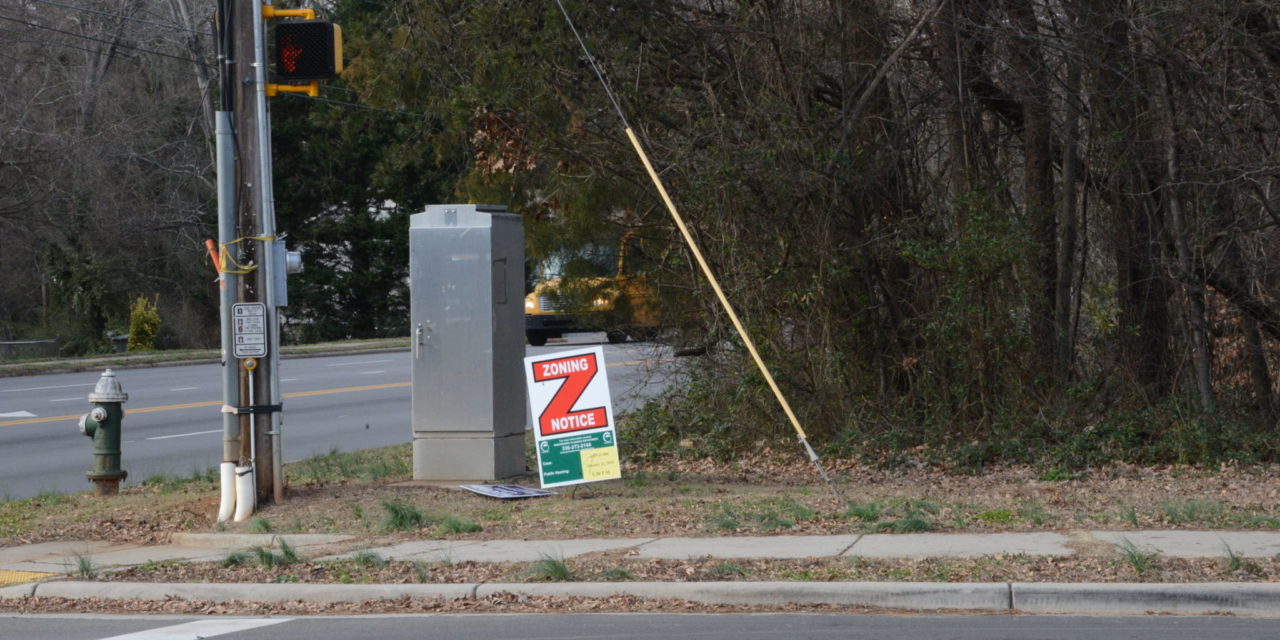Greensboro is facing a housing shortage.
The Greensboro City Council often discusses the shortage of affordable housing, but the housing shortage is not restricted to affordable housing. In fact, the overall housing shortage exacerbates the affordable housing shortage by raising the cost of all housing due to supply and demand issues.
So it is good news that Greensboro, in the first six months of 2023, rezoned more property than it did in all of 2022, and nearly equal to the amount in 2021.
According to a report from the Greensboro Planning Department, from January through June of this year the city rezoned or annexed and zoned 887 acres, with the potential to add about 2,482 dwelling units to the city.
In 2011, the state passed new regulations on annexation that made it extremely difficult for a city to annex property unless the property owner requested annexation. So almost all annexations since 2011 have been at the request of the property owner, which greatly changed the way cities in North Carolina can grow.
In the first six months of 2023, Greensboro annexed 164 acres, with 87 of those acres zoned residential and 76 acres zoned industrial. The land was zoned for 485 multi-family dwelling units and 163 single-family dwelling units, for a total of 648 new dwelling units in Greensboro.
The city also rezoned 723 acres with 135 acres rezoned residential and 302 acres rezoned industrial. Of the land rezoned residential 93 percent was for multifamily residential, which has the potential for 1,700 dwelling units, and 7 percent was rezoned for single-family residential with the potential for 134 new single-family homes.
The residential rezoning could provide a total of 1,834 new dwelling units for Greensboro.
In the past two and a half years, through annexation and original zoning and rezoning, the city has approved 13,278 dwelling units.
With all of the economic development and new jobs coming to the area, Greensboro is going to need all of those new dwelling units and more.


And council is seeing all those additional tax dollars for more wasteful pet projects .
When the City promotes airbnb and makes it attractive for large companies to buy up any affordable housing for that purpose they effectively decimate the available housing market for 1st time buyers.It increases home prices, reducing available affordable houses and creates a panic driven market.Then rental companies increase their prices to take advantage of the people that can’t buy homes.Bad cycle affecting everyone.Look at the median cost of housing vs median salary in Greensboro. No brainer.
It will be a better year when we annex that 1000 acres in summerfield move the future smith homes out there and reduce city violence by dispersing it. Sorry Adams farm but better dispersed then concentrated to one side of town.
We are ahead of Durham in crime, nothing to be proud of. Population is Just like cockroaches, move in, destroy, then go to the next neighborhood. Adam Farms was a great neighborhood a few years ago, now it’s dark and full of crime.
Housing is a supply/demand cycle, just like the auto business, commodities, etc. I just drove down 421 this AM, lots of construction around new & old 421. Julian airport appears to be closed, yet their are Toyota signs, new power lines, portable housing everywhere. Will Julian airport be improved for jets? Perhaps competition for GSO? A big deal for Toyota and Randolph County. Wonder why they didn’t move few miles north into Guilford County………
We as In Guilford County won the bid and hence the name Greensboro Randolph Mega site it was actually proposed by the state being we had a bond out and couldn’t afford to take on more debt so instead the decided to move the site into Randolph county the state proposed it be closer to Asheboro but Toyota insisted on being near Guilford county. That’s why it’s dropped on the county line I can throw a rock and it will bounce into the county we are selling houses like hot cakes in southeast Greensboro and also get to expand into Julian it’s a win win.
Apartments are not housing growth. They serve as temporary housing until the tenants leave the area or find a home. They are not permanent homes. It is good that some of the growth, though not enough is with Single Family Homes. That is the housing that this Xity desperately needs. We need permanent residents who invest in our City, who feel pride in their community and who fight for values for their neighborhoods. Apartments are not housing growth…..